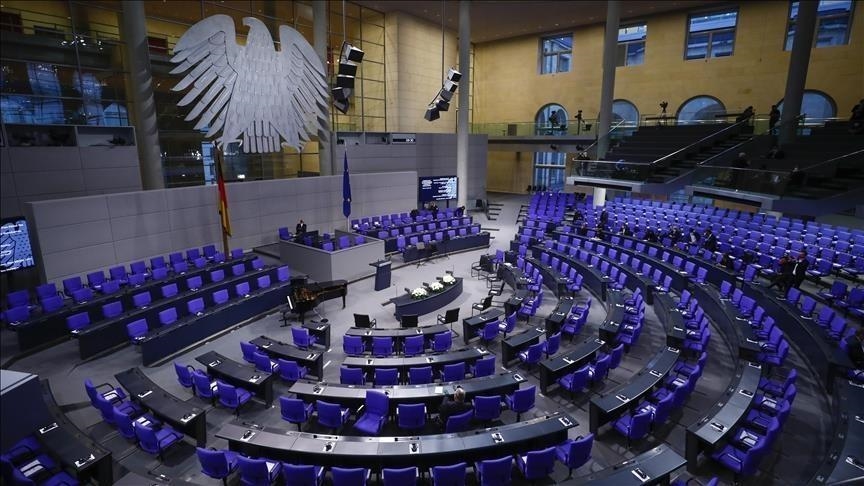German parliament approves controversial antisemitism resolution
Many civil society organizations and intellectuals, including prominent Jewish scholars, criticize non-binding motion, warning that it may violate fundamental rights such as free expression, free assembly

BERLIN
The German parliament on Thursday passed a controversial antisemitism resolution, which critics argue will stifle any criticism of Israel.
The non-binding motion titled "Never Again is Now: Protecting, Preserving, and Strengthening Jewish Life in Germany" was approved by votes in parliament, with support from the co-ruling Social Democrats (SPD) and Greens, as well as opposition parties such as the Christian Democratic Union (CDU), the liberal Free Democrats, and Alternative for Germany (AfD).
Meanwhile, the Sahra Wagenknecht Alliance for Understanding and Justice" (BSW) party voted against the resolution, while the Left Party abstained.
The motion, which condemns the country's increasing antisemitic incidents, states that Germany bears a special responsibility in the fight against antisemitism as a result of the Nazi-era Holocaust.
It said, "We must draw attention to antisemitism, warn against it, and stand loudly and visibly against it."
The motion called on the German government to strengthen Jewish life in the country by keeping the memory of the Holocaust alive, supporting memorial sites, and encouraging educational activities.
Furthermore, the resolution prohibits public funding for any organization or project that promotes antisemitism, questions Israel's right to exist, calls for a boycott of Israel or actively supports the Boycott, Divestment, and Sanctions (BDS) movement.
According to the resolution, Israel has the right to defend itself against attacks that violate international law within the framework of international law, and it calls on the government to continue actively defending the existence of the state of Israel and its legitimate security interests as a fundamental principle of German foreign and security policy.
Meanwhile, many civil society organizations and intellectuals, including prominent Jewish scholars, have criticized the motion, warning that it may violate fundamental rights such as free expression, free assembly, freedom of science, and artistic freedom.








